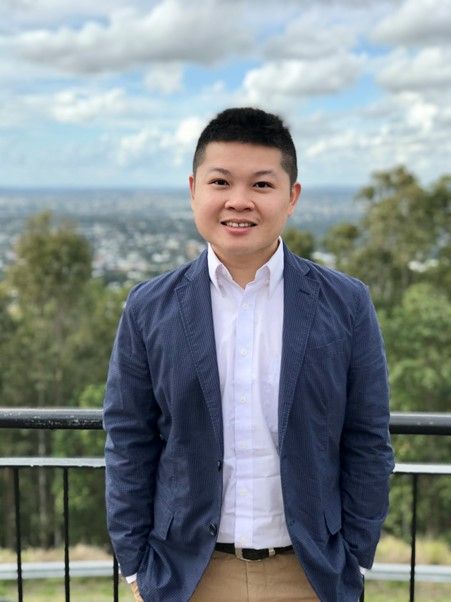Research project
Uncoupling Heteropatriarchy in African Feminism: Unmarried Women and Indigenous Knowledges of Gender and Sexuality among the Shona of Zimbabwe
- Start date: 1 February 2023
- End date: 1 January 2027
- Funder: British Academy
- Primary investigator: Professor Tendai Mangena
Value
£599,871
Description
Uncoupling heteropatriarchy in African Feminism uses the experiences of unmarried Shona women of Zimbabwe as represented in indigenous knowledges and in their biographies, to explore the decolonial implications of such representations for African feminism. It particularly problematizes the concern with heterosexual marriage which, although deeply embedded in indigenous cultures, can be seen as a legacy of the colonial, Euro-Christian influence in African societies.
The project’s broader questions revolve around the voices and experiences of unmarried Shona women, and how these complicate, challenge or disrupt dominant ideas regarding the norms of gender, marriage, and family life in contemporary Africa.
The project establishes the nascent field of singles studies as an important sub-field of inquiry that deepens an understanding of major questions in African and gender studies, such as about gender and modernity, socio-cultural change, and decolonization.
Events
‘The place of singles studies in feminist and gender discourses’ seminar series co-hosted by University of Leeds’s Centre for Interdisciplinary Gender Studies and The Centre for Religion and Public Life (CRPL)
18 September 2024, 1300-1430, UK time, Online.
Presentation title: Solo Spirituality - Navigating Singleness in Indonesia by Dr Karel K. Himawan
Abstract: In a society where marital status and religious affiliation hold significant sway over social perceptions, the experience of remaining single during the marriageable age can bring about a multitude of social, psychological, and spiritual challenges. While societal norms may exert pressure, religious beliefs have the potential to offer solace amidst life's unwelcome circumstances. In this presentation, I will explore the multifaceted roles religion plays in shaping the experience of singleness among Indonesian adults, encompassing attitudes towards marriage, singlehood, and gender norms. Indonesia's religious pluralism offers a unique lens through which to explore the diverse interpretations of singleness and navigate the intricacies of this life stage.
Speaker bio: Karel is a licensed clinical psychologist under the Allied Health Professions Council in Indonesia. Karel earned his Doctorate degree in Clinical Psychology from the Faculty of Medicine at the University of Queensland. He currently serves as the Head of Department of the Undergraduate Psychology program at Universitas Pelita Harapan, and as a Center Director at Breakthrough for Life Psychological Center.
In parallel with the interests of his professional practice, Karel is actively involved in various research projects about interpersonal relationship, particularly on how marriage and marital status affect an individual's well-being viewed through cross-cultural perspectives. His works have been published in several international reputable journals and also showcased in RELASI Research Lab, where he is the core researcher.

‘The place of singles studies in feminist and gender discourses’ seminar series co-hosted by University of Leeds’s Centre for Interdisciplinary Gender Studies
13 November 2024, 1130-1300, UK time, Online.
Presentation title: Lessons from Three Decades of Studying Singlehood by Prof Bella DePaulo
Abstract/focus
Our research on singlehood is not just academic. It is personal. Our findings make their way into the popular press, where people who are single and people who are not single take them to heart.
The experiences of single life are not just personal. They are also institutional and structural. Laws, policies, norms, and conventions are often designed in ways that disadvantage people who are single and advantage people who are coupled. As scholars, it is important for us to recognize the contexts of single life as we try to understand and explain our findings.
The values, wishes, and perspectives of people who are coupled dominate our everyday lives and too often our scholarship too. It is important for scholars to study single people from their own perspective, particularly the perspective of single people who love being single, the “single at heart.”
We need guidelines and heuristics for adopting a singles perspective and avoiding the perpetuation of deficit narratives of single life. I will describe a few.
Gender equality is important, but without equality for single people, it is not enough.
In the U.S., it is the groups that have been devalued, such as Black adults and queer people, who have often been the trailblazers in demonstrating how to flourish when single.
Interdisciplinary research is always important, but it may be especially important in the study of singlehood. For example, my field is psychology and I have found that sociologists and anthropologists have a lot to teach us about the importance of cultural and structural forces in the experiences of people who are single.
Similarly, global research is always important, but it may be especially important in the study of singlehood. That’s not just because the rewards, challenges, and meanings of single life may be so different in different places, but also because research across many nations helps us understand the commonalities in the experiences of single life.
Speaker bio: Bella DePaulo (PhD, Harvard) is the author of Single at Heart: The Power, Freedom, and Heart-Filling Joy of Single Life, as well as other books and more than 150 scholarly publications. She has been described by Atlantic magazine as "America's foremost thinker and writer on the single experience." Her TEDx talk, “What no one ever told you about people who are single,” has been viewed more than 1.7 million times. Professor DePaulo is an Academic Affiliate in the Department of Psychological and Brain Sciences, University of California, Santa Barbara, USA. She has always been single and always will be.

